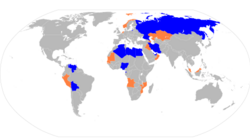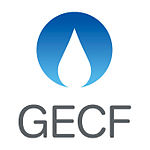
Petroleum, also known as crude oil, or simply oil, is a naturally occurring yellowish-black liquid mixture of mainly hydrocarbons, and is found in geological formations. The name petroleum covers both naturally occurring unprocessed crude oil and petroleum products that consist of refined crude oil.

The Economy of Qatar is one of the highest in the world based on GDP per capita, ranking generally among the top ten richest countries on world rankings for 2015 and 2016 data compiled by the World Bank, the United Nations, and the International Monetary Fund (IMF). The country's economy has grown despite sanctions by its neighbors, Saudi Arabia and the United Arab Emirates. Mainly because the country exports primarily to Japan, South Korea, India and China, making the sanctions effectively redundant as neither Saudi Arabia nor the United Arab Emirates have imposed trading penalties such as tariffs or embargoes on either of these countries for trading with Qatar, or offering incentives such as discounts for their own energy exports to reduce Qatari exports.
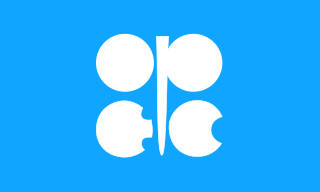
The Organization of the Petroleum Exporting Countries is an organization enabling the co-operation of leading oil-producing countries in order to collectively influence the global oil market and maximize profit. It was founded on 14 September 1960 in Baghdad by the first five members. The 12 member countries account for an estimated 30 percent of global oil production.

John K. Defterios is an American journalist best known for his work at CNN. He was CNN Business Emerging Markets Editor on CNN International. He left the company in May 2021, after 35 years.
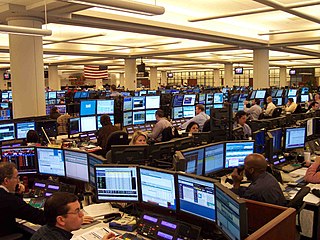
The price of oil, or the oil price, generally refers to the spot price of a barrel of benchmark crude oil—a reference price for buyers and sellers of crude oil such as West Texas Intermediate (WTI), Brent Crude, Dubai Crude, OPEC Reference Basket, Tapis crude, Bonny Light, Urals oil, Isthmus, and Western Canadian Select (WCS). Oil prices are determined by global supply and demand, rather than any country's domestic production level.

Russia's energy policy is presented in the government's Energy Strategy document, first approved in 2000, which sets out the government's policy to 2020. The Energy Strategy outlines several key priorities: increased energy efficiency, reducing the impact on the environment, sustainable development, energy development and technological development, as well as improved effectiveness and competitiveness. Russia's greenhouse gas emissions are large because of its energy policy. Russia is rich in natural energy resources and is one of the world's energy superpowers. Russia is the world's leading net energy exporter, and was a major supplier to the European Union until the Russian invasion of Ukraine. Russia has signed and ratified the Kyoto Protocol and Paris Agreement. Numerous scholars posit that Russia uses its energy exports as a foreign policy instrument towards other countries.
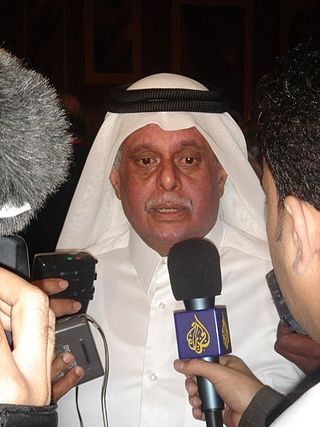
Abdullah bin Hamad Al Attiyah is the former deputy prime minister of Qatar and the head of the Emir's court. From September 1992 to January 2011, Attiyah was Qatar's minister of energy and industry.
Sources include: Dow Jones (DJ), New York Times (NYT), Wall Street Journal (WSJ), and the Washington Post (WP).

The International Energy Forum (IEF) is an inter-governmental, non-profit international organisation which aims to foster greater mutual understanding and awareness of common energy interests among its members. The 73 Member Countries of the Forum are signatories to the IEF Charter, which outlines the framework of the global energy dialogue through this inter-governmental arrangement.

Energy in Qatar describes energy production, consumption, and policies of the State of Qatar. The International Monetary Fund ranked Qatar as having the fifth highest GDP per capita in 2016 with a 60,787 USD per capita nominal GDP over a population of 2.421 million inhabitants. In 2014, oil and natural gas production made up 51.1% of Qatar's nominal GDP. Thus, Qatar has a worldwide high ranking of per capita GDP due to its significance production and exports in both crude oil and natural gas in proportion to its relatively small population.

Energy in Algeria describes energy and electricity production, consumption and import in Algeria. Primary energy use in 2009 in Algeria was 462 TWh and 13 TWh per million persons. Algeria is an OPEC country.

The No Oil Producing and Exporting Cartels Act (NOPEC) was a U.S. Congressional bill, never enacted, known as H.R. 2264 (in 2007) and then as part of H.R. 6074 (in 2008). NOPEC was designed to remove the state immunity shield and to allow the international oil cartel, OPEC, and its national oil companies to be sued under U.S. antitrust law for anti-competitive attempts to limit the world's supply of petroleum and the consequent impact on oil prices. Despite popular sentiment against OPEC, legislative proposals to limit the organization's sovereign immunity have so far been unsuccessful. "Varied forms of a NOPEC bill have been introduced some 16 times since 2000, only to be vehemently resisted by the oil industry and its allied oil interests like the American Petroleum Institute and their legion of 'K' Street Lobbyists."
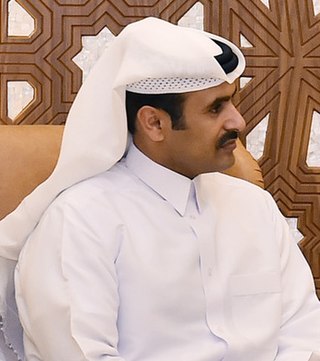
Saad Sherida al-Kaabi is the current Minister of Energy in Qatar, and the President and CEO of QatarEnergy, the state owned corporation which operates all oil and gas activities in the State of Qatar.

The Joint Organisations Data Initiative (JODI) is an international collaboration to improve the availability and reliability of data on petroleum and natural gas. First named the "Joint Oil Data Exercise", the collaboration was launched in April 2001 with six international organisations: Asia-Pacific Economic Cooperation (APEC), Statistical Office of the European Communities (Eurostat), International Energy Agency (IEA), Latin American Energy Organization (OLADE), Organization of the Petroleum Exporting Countries (OPEC), and United Nations Statistics Division (UNSD). In 2005, the effort was renamed JODI, joined by the International Energy Forum (IEF), and covered more than 90% of the global oil market. The Gas Exporting Countries Forum (GECF) joined as an eighth partner in 2014, enabling JODI also to cover nearly 90% of the global market for natural gas.

The 3rd GECF summit was a biennial Gas Exporting Countries Forum summit, an international relations conference attended by the heads of state or heads of government of most member states of the GECF. The summit was held in Tehran, Iran, the first time the city has hosted the summit. Iran assumed the chair of the GECF from Russia on 1 January 2014.

Azerbaijan–Equatorial Guinea relations are the bilateral relations between Azerbaijan and Equatorial Guinea in the political, socio-economic, cultural and other spheres.
A global energy crisis began in the aftermath of the COVID-19 pandemic in 2021, with much of the globe facing shortages and increased prices in oil, gas and electricity markets. The crisis was caused by a variety of economic factors, including the rapid post-pandemic economic rebound that outpaced energy supply, and escalated into a widespread global energy crisis following the Russian invasion of Ukraine. The price of natural gas reached record highs, and as a result, so did electricity in some markets. Oil prices hit their highest level since 2008.
